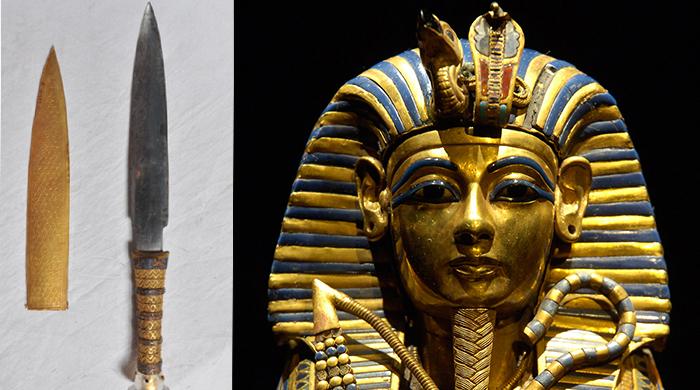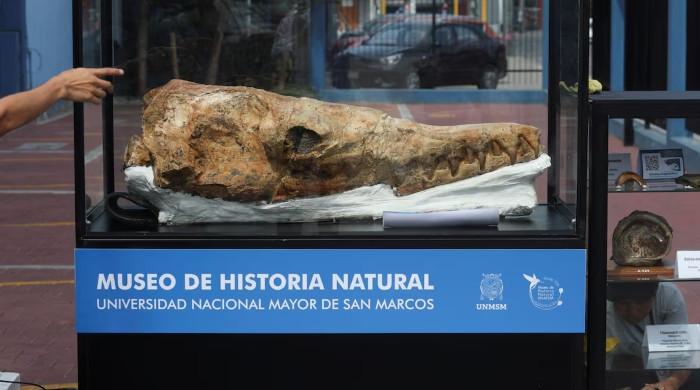Egyptian child pharaoh Tutankhamun’s dagger came from outer space
The iron blade placed in his sarcophagus next to the right thigh of his mummified body was manufactured from a meteorite
June 02, 2016

King Tutankhamun continues to astound the archaeological community, as new research shows that the ancient Egyptian child pharaoh was buried with a dagger that originated in outer space.
The iron blade placed in his sarcophagus next to the right thigh of his mummified body was manufactured from a meteorite, according to researchers from Milan Polytechnic, Pisa University and the Egyptian Museum in Cairo.
The team carried out an analysis using non-invasive, portable X-ray fluorescence spectrometry and published their results in the journal Meteoritics and Planetary Science, the RT reported on Thursday.
Archaeologist Howard Carter’s discovery of King Tut’s tomb in 1922 sparked worldwide fascination with the 14th Century BC pharaoh. Three years later, two blades – one iron and one gold – were found in the wrapping of the 18th Dynasty mummy.
Previous analyses of iron objects found in King Tut’s tomb have proven controversial, but technological advances enabled the researchers, led by Daniela Comelli, to confirm that the iron in the dagger blade did, indeed, come from a meteorite.
“Meteoric iron is clearly indicated by the presence of a high percentages of nickel,” Comelli told Discovery News.
The pharaoh’s dagger is composed of nearly 11 percent nickel – almost three times the amount found in artifacts produced from iron ore quarrying. It also has traces of cobalt consistent with that of iron meteorites.
The team then went a step further to locate the source of the blade. “We took into consideration all meteorites found within an area of 2,000 kilometers in radius centered in the Red Sea, and we ended up with 20 iron meteorites,” Comelli explained.
Only one of them turned out to have nickel and cobalt levels consistent with Tut’s blade. It was found in 2000 at the Egyptian resort town Mersa Matruh.
Researchers said their study offers new insight into the lives of ancient Egyptian pharaohs and “the evolution of the metal working technologies in the Mediterranean.”
The study points out that the “high manufacturing quality of Tutankhamun’s dagger blade is evidence of early successful iron smiting in the 14th C. BCE.”
“As the only two valuable iron artifacts from ancient Egypt so far accurately analyzed are of meteoritic origin, we suggest that ancient Egyptian attributed great value to meteoritic iron for the production of fine ornamental or ceremonial objects up until the 14th C. BCE,” the team also concluded.
The dagger wasn’t the only otherworldly object found in King Tut’s tomb. An amulet scarab on a necklace found in the boy king’s tomb is believed to be made from silica glass created when another space rock smashed into the Libyan desert and melted the nearby sand.











